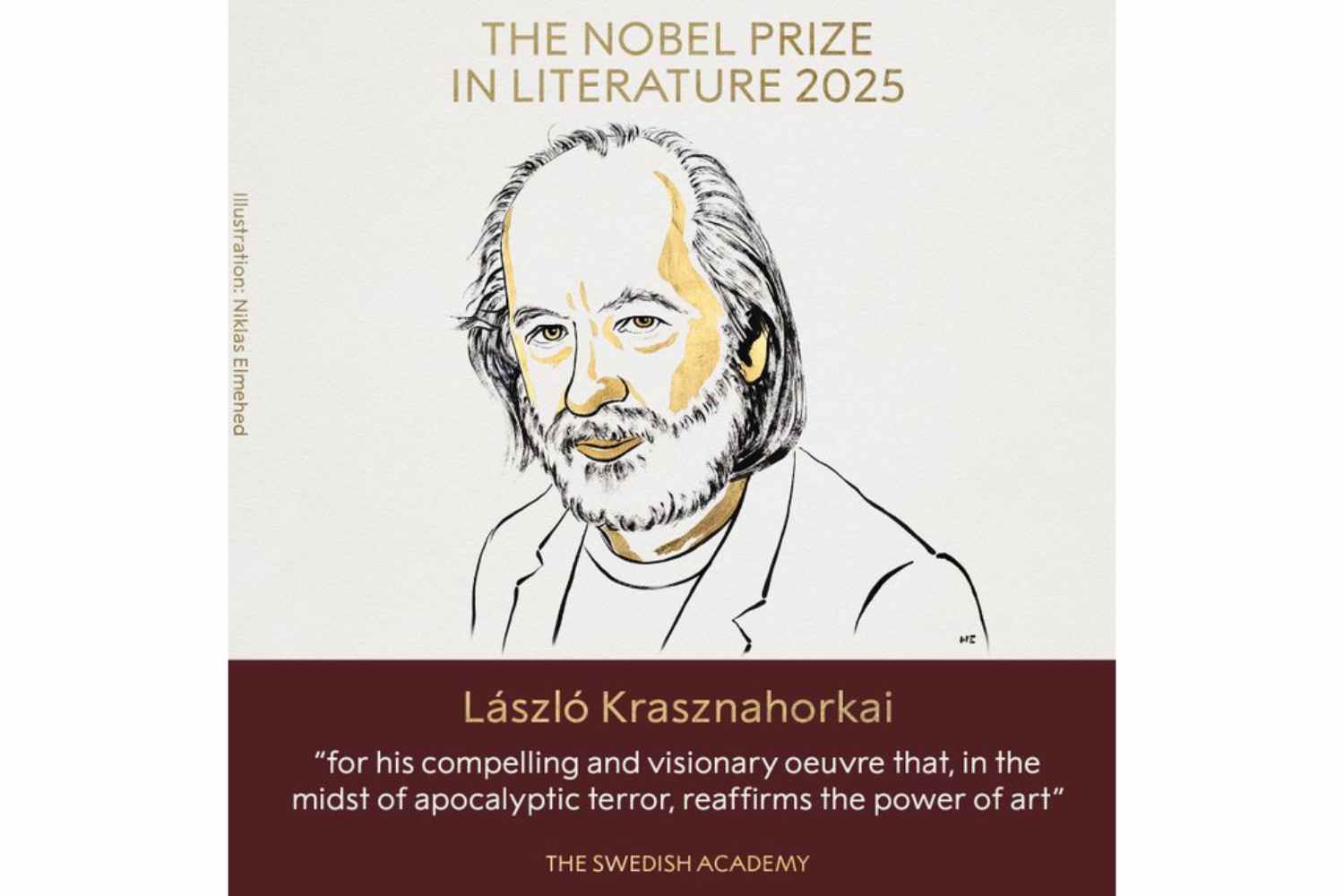The recognition was awarded to one of the leading figures of postmodern literature "for his compelling and visionary body of work that, in the midst of apocalyptic terror, reaffirms the power of art"

It’s official: the prestigious 2025 Nobel Prize in Literature has been awarded to Hungarian author László Krasznahorkai. The recognition crowns a deeply influential literary career, celebrated by the jury “for his compelling and visionary body of work that, in the midst of apocalyptic terror, reaffirms the power of art.” The author, born in 1954 in the small town of Gyula, Hungary, has established himself as one of the leading figures of postmodern literature, with work that investigates themes of dystopia and melancholy with an unmistakable style.
The 2025 #NobelPrize laureate in literature László Krasznahorkai also looks to the East in adopting a more contemplative, finely calibrated tone. The result is a string of works inspired by the deep-seated impressions left by his journeys to China and Japan.
About the search for… pic.twitter.com/TpXMQZdAR7
— The Nobel Prize (@NobelPrize) October 9, 2025
Already in 2015 he had received the Man Booker International Prize, becoming the first Hungarian author to obtain such an honor. Critics like the late Susan Sontag had described him as “the contemporary Hungarian master of the Apocalypse.”
BREAKING NEWS
The 2025 #NobelPrize in Literature is awarded to the Hungarian author László Krasznahorkai “for his compelling and visionary oeuvre that, in the midst of apocalyptic terror, reaffirms the power of art.” pic.twitter.com/vVaW1zkWPS— The Nobel Prize (@NobelPrize) October 9, 2025
From Hungarian dystopia to the Apocalypse
His 1985 debut with Sátántangó (Satantango) immediately established his dystopian tone. Set in a remote Hungarian collective farm before the collapse of communism, the novel chronicles indigent residents waiting for a “miracle,” a hope that is manipulated and disillusioned by the deceptive arrival of Irimiás. The theme of vain waiting is accentuated by a Kafka quotation at the opening.
Success was reinforced by Az ellenállás melankóliája (The Melancholy of Resistance, 1989), a “feverish horror fantasy” set in the Carpathians. Here, the arrival of a spectral circus with a whale carcass unleashes violence, vandalism, and the threat of a dictatorial coup. Krasznahorkai masterfully describes the brutal clash between order and disorder, confirming his reputation as “master of the apocalypse.”
Krasznahorkai is a great epic writer inserted in the tradition of Central Europe (Kafka, Thomas Bernhard), characterized by absurdity. His prose is monolithic and unmistakable: it has evolved into extremely long, enveloping sentences, often without periods.
This stylistic vein manifests in works that transcend national boundaries, such as Háború és háború (War and War, 1999), in which the archivist Korin travels to New York to disseminate an ancient epic. More recently, in Herscht 07769 (Herscht 07769: A Novel, 2021), he explores social chaos in a contemporary German town, confronting violence and beauty against the backdrop of Johann Sebastian Bach’s legacy.
The influence of the East
Despite the apocalypticism, the author has shown remarkable stylistic breadth by looking to the East. His travels to China and Japan have introduced a more contemplative and sensitive tone.
This influence is crucial in Seiobo járt odalent (Seiobo There Below, 2008). This collection of seventeen stories, structured in Fibonacci sequence, meditates on beauty and artistic creation in a world of impermanence. The book reinterprets the Japanese myth of Seiobo as a metaphor for the birth of a work of art, often focusing on secondary figures (custodians, artisans) rather than the artist himself. The scene of a motionless heron on the Kamo River in Kyoto embodies the elusive image of the artist’s condition.
His singular vision extends to cinema, with a fundamental collaboration with his friend director Béla Tarr, who adapted films such as Sátántangó and Werckmeister Harmonies. Although international success culminated with the 2025 Nobel Prize, Krasznahorkai maintains a reserved profile and lives “like a hermit” in the hills of Szentlászló, Hungary, continuing to shape his unique literary universe.
Source: Nobel Prize
